Trending
Opinion: How will Project 2025 impact game developers?
The Heritage Foundation's manifesto for the possible next administration could do great harm to many, including large portions of the game development community.
Jasper Byrne's side-scrolling ode to golden age horror games like Silent Hill unabashedly borrows elements from the games that inspired it, even if those elements seem outdated today.
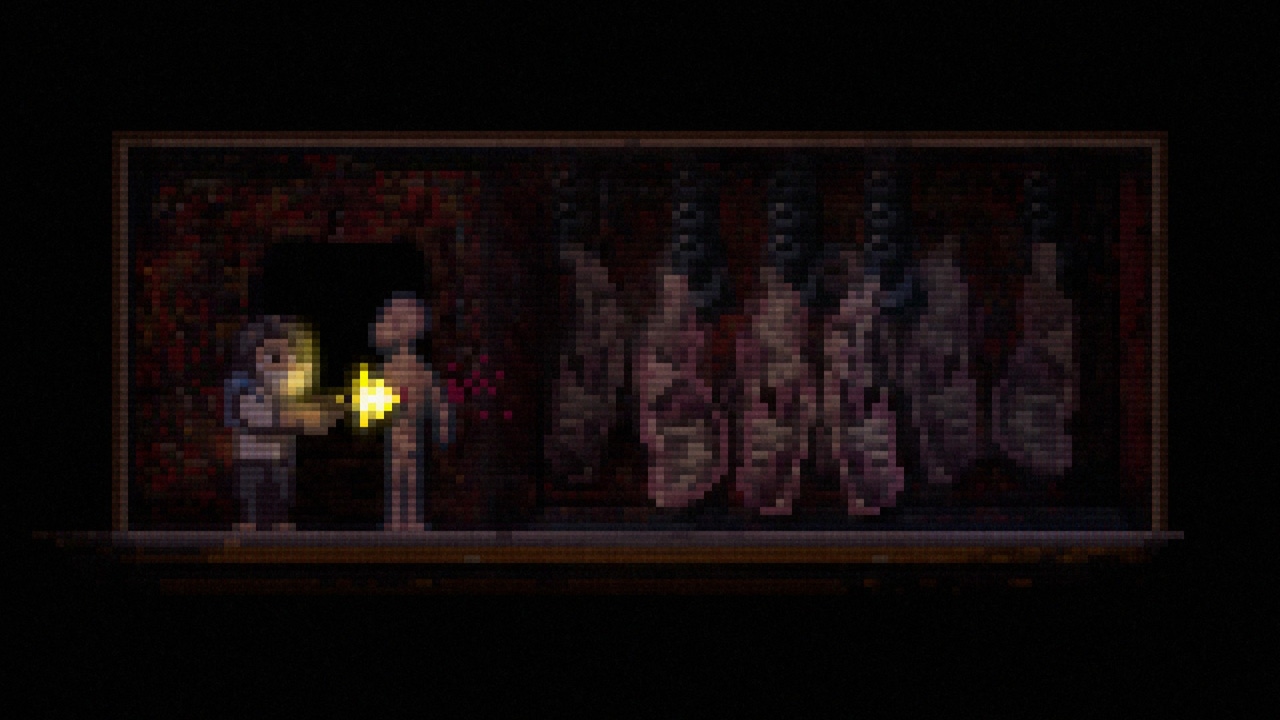
Walking down a pitch black hallway made of pulsing guts doesn’t sound like anyone’s idea of a good time. But, it’s just what you learned to expect after titles like Silent Hill defined the psychological horror genre back in 1999.
Discovering terrible secrets, losing sight of your loved ones and dancing to the melody of your ever-unravelling sanity was just the beginning of the experiences waiting for us in those games, and we went happily right along with them.
Lone Survivor, Jasper Byrne’s side-scrolling ode to that golden era, is bound to evoke memories of the first time we ever stumbled down a questionable alley and into that town that had long ceased to be anything remotely habitable.
Upon first play of Lone Survivor, any devotee of Silent Hill canon will notice that there are a ton of nods to the series, right down to the use of certain sounds from Silent Hill 2. In fact, it could be argued that Byrne has simply mashed together all his favorite creepy influences and made a game out of them (The Director, for instance, is one of Lone Survivor's figures who could have strolled right out of Twin Peaks).
But Lone Survivor is more than that.
It’s important for readers to know that before Lone Survivor, Byrne did a "demake" of Silent Hill 2 called Soundless Mountain II for the 2008 TIG Bootleg Demakes Competition. The developer has always worn his heart on his sleeve when it comes to his love of the Silent Hill series.
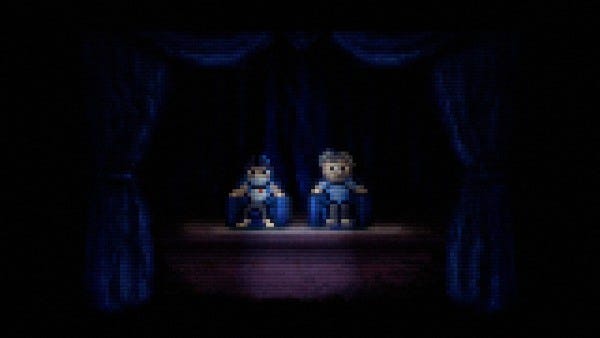
"The first and third Silent Hill games seemed to me to revolve around a supernatural horror," Byrne says. "I think this is why I found the second installment so fresh and exciting - I suppose that Silent Hill 2 was the first game I ever played to fully explore the psychological side."
"I never really thought of myself as a horror fan, exactly. I’m more interested in human drama. And I think the horror games that I do love have that in common. There's a thread running through them, where the horror comes from within."
Survival horror has changed quite a bit since those days. Team Silent walked away from the Silent Hill series after Silent Hill: The Room, leaving the franchise open to the hands of many others eager to give it a shot.
There have been five entries from four different game studios since then, and while they have achieved some levels of critical praise, fans of the series frequently voice their displeasure over how what was once genuinely terrifying has turned into a series of tropes: fog, mysterious strangers, mutated creatures and the like.
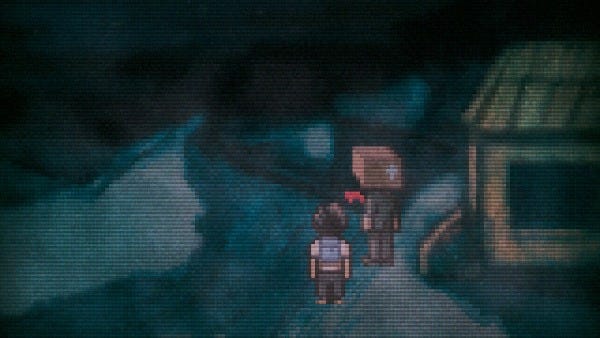
Lone Survivor acknowledges that the tropes are there, and it uses them. You’re a character with no name trapped in an apartment building, scavenging for food and ammo and evading monsters in order to survive. Current survival horror titles have tried to use the same formula as well, but have often fallen short with the execution, unable to produce an experience that packed the same punch of the past. Gone are the days of our purposely slow, clunky protagonist, yet all we seem to want to do is get back in his shoes.
Byrne, on the other hand, unapologetically brings back some of the frustration associated with the genre’s early days. However, he cloaks it in the most essential element of any horror game that’s ever made an impact on an audience -- he sees no reason whatsoever to explain anything that goes on in your character’s world, instead leaving you to draw your own conclusions. It leaves a sense of instability in its wake, one the player desperately seeks solid ground from, but to no avail.
"I think what draws me to psychological horror in games is that it is one way of exploring quite adult themes that are often ignored," Byrne says. "In my case, I wanted to look at drug use, social difficulties, even borderline psychosis in a way that was respectful, possibly even thought-provoking."
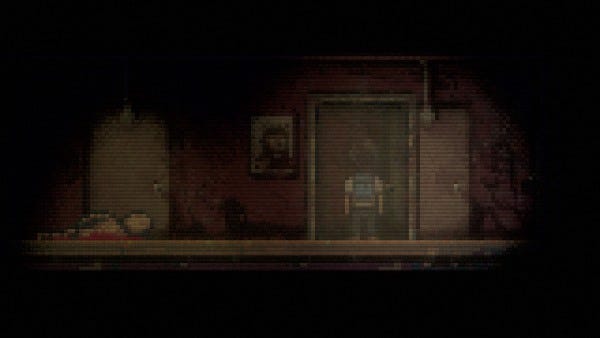
Drug use is a focal point of Lone Survivor, one that is wholly up to the player to avoid or partake in. By taking pills, you can survive for longer without rest, and you have a better chance of meeting strange characters in your dreams, such as a man who stands silently on the horizon wearing a cardboard box on his head. However, your mental stability also deteriorates at a faster pace as you push to survive.
In psychological horror, sanity is something we aim to lose, or at least, barely grasp onto the tendrils of. In a desolate place like the one we stand in, we feel that we are ultimately both safe and unsafe. We can experience the ride, but we can also turn off the console when we’re ready.
Saving (done by looking in the game’s mirrors) reinforces the idea that sanity is merely a lens that the player chooses to see his world through. Better habits cause him to say positive things to his reflection and remain hopeful. Neglecting yourself makes you observe that you are starting to look like "one of them."
In the end, the separation between you and the beasts that inhabit Lone Survivor is tenuous at best. Sanity is never a safe haven, and the beasts you encounter may not be as unlike you as you think. And sometimes, turning off the game doesn’t mean the things you saw exit your mind as well.
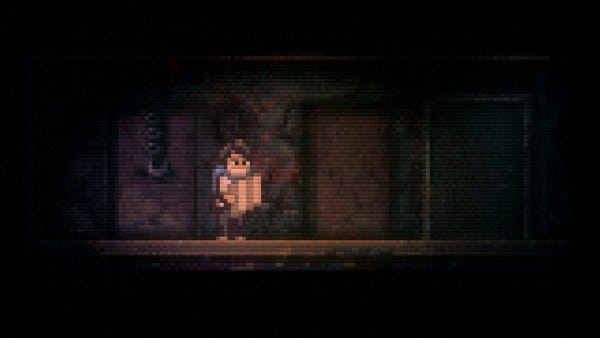
Byrne believes that horror games need more emotions than just fear to succeed. "If horror is all one-note - suspense and eventual relief, repeated as a cycle, it quickly loses its grip over me. The stuff I find most disturbing often has a mixture of the comic, the sentimental, all kinds of sensations other than fear."
Lone Survivor is different from other entries this genre, and also the same. It’s an ode, but it also sings its own song. By imitating the influences that came before it, it creates a portal for us, one that allows us access directly back to the first time we ever stood in Silent Hill and wondered what the hell was going on. Despite all the feelings of unease we experience when we go, we still crave to go again.
In fact, we can’t wait.
Read more about:
Horror GamesYou May Also Like